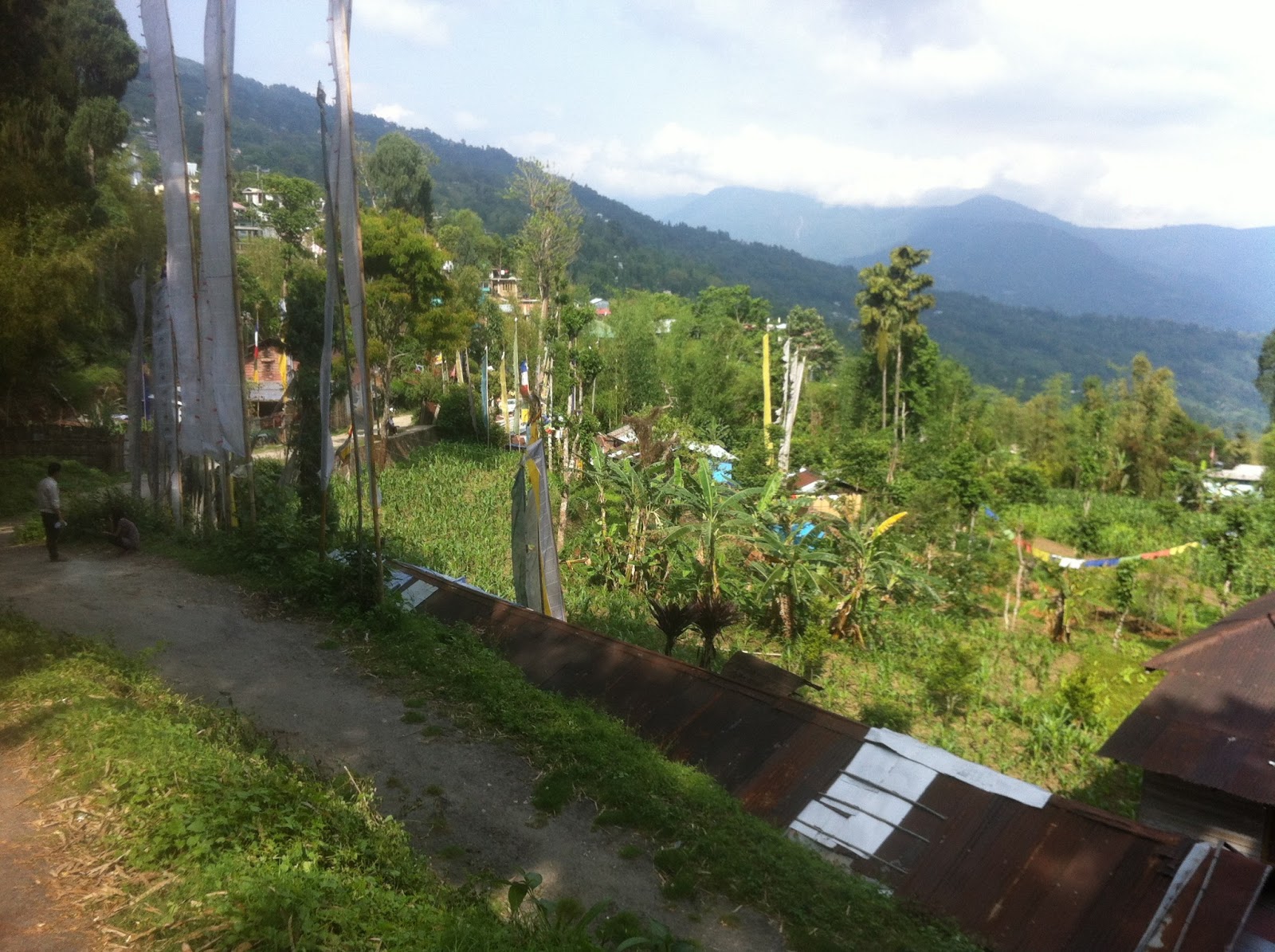Saturday in Kalimpong is market day,
when the Heart Bazaar is filled with vendors: fruit, vegetable,
spice, hardware, housewares, clothing, shoes... anything. As the sun
rises it fills to the brim with people. The crowds flow like water
through the windy streets occupying any empty place available.
Usually on Saturday mornings I hide under the covers for as long as possible and then creep out to leisurely drink
coffee in my pajamas. Once I am ready to meet the world, the town and
bazaar are too busy and too full to be an attraction to a western girl
who sticks out like a sore thumb above the sea of dark brown heads.
I have
always disliked looking out of place. Quite vividly I remember, from
the missions trips I took to New York City when I was in high school,
hating to feel like people could just look at me and see that I was
not a city girl. Not that I want to be a city girl, I just didn't
like the feeling that I didn't belong. Though I still try to adapt to
the culture and fit in here, I have resigned myself to always be an
outsider. Saturdays are suppose to be restful and I don't often find
being stared at and sized up by an endless number of brown-eyes (no mater how beautiful they are) very
restful.
But this Saturday was different.
Maybe it was the fact that I hadn't
gotten out of the house much last week, or the fact that I am getting
nostalgic as I mentally prepare to leave Kalimpong in just a month,
but either way this Saturday I was drawn out from underneath my
covers and down the hill to town, all before 10am.
I didn't have much of an agenda or
shopping list. I just was hoping for some time to wander, think, and
take photos. (I really wish that I could take photos with my eyes.
Again I hate standing out as "that tourist” taking pictures of
things locals would NEVER think about taking pictures of. Plus
sometimes there is just not enough time to get the camera out... then
that perfect moment, that exquisite image is gone.) As I meandered along the street I saw a
precious sister. I have only met her once, but the love and light of
our Savior emanates from every part of her. Seeing her face and
bowing slightly in greeting as we passed, sparked my prayers for
Kalimpong.
I walked on and talked to the Lord about his heart for
these people, his heart for this city. Then my eyes came to the other
side of the road, the less crowded side, where two sons walked gently
quietly with arms linked with their father in-between them. The father was
quite hung over from a late night of alcohol. I imagine how the wife
and sons had fretted and worried until he was found. Now they had to
walk him home and get him sobered up, attempting to save as much face
as possible. This scene sparked even more prayer... “Father thy
Kingdom come, thy will be done on earth as it is in heaven.”
I looked up and saw it, a cross.
Atop a
dirty little shack that sells fried snacks, noodles, and chips was
clearly a cross, not put there intentionally but left there somehow
from old electrical poles and shrouded with tattered Buddhist prayer
flags, electrical wires, and dead vines. This image shouted to me, “The Kingdom
is coming! I AM is already at work here. Watch and see.”
It also spoke to me of how tradition in the church and Buddhism have constricted the free movement of what the Lord
wants to do here. Like the old raiments of a beggar, neglected, stinking, full of holes, and good for nothing, the remnants of stale
tradition in the church and the spiritual strong holds of Buddhism
need to be torn down from this place before a fresh spirit of revival
will be free to flow.
But even still I know Christ is here and he is moving.













